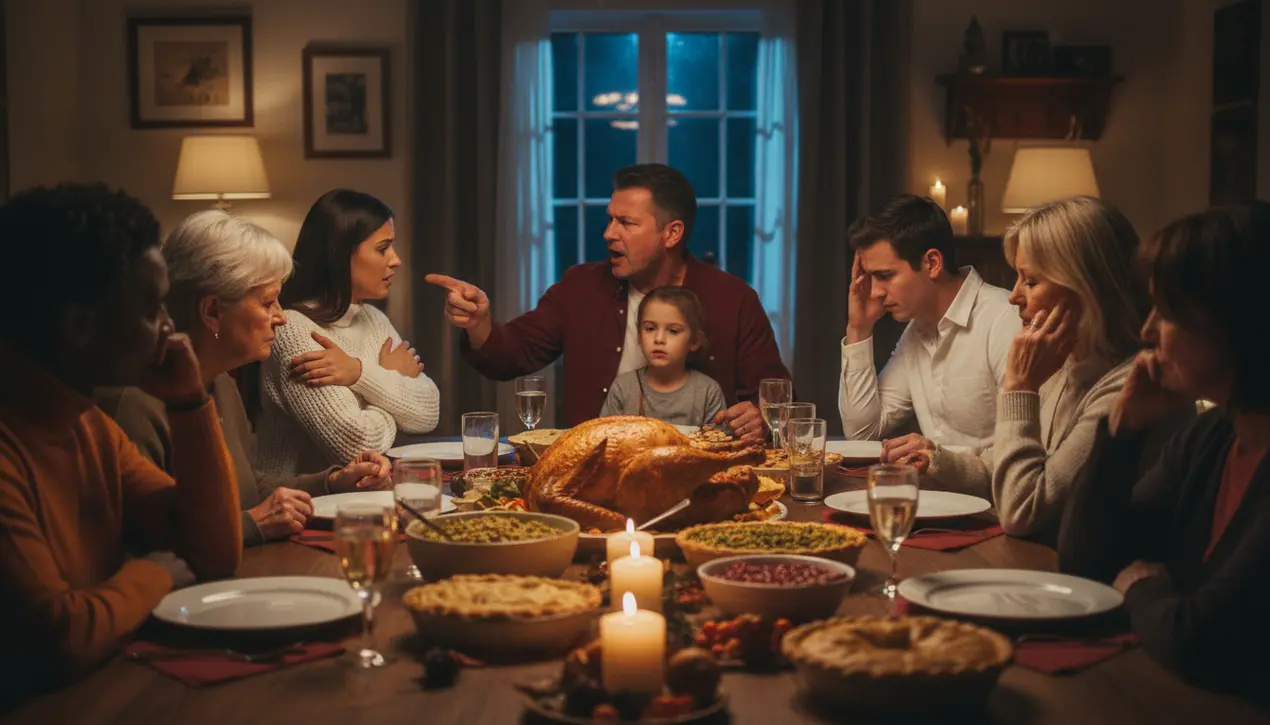
Otherfood & diningRestaurant Openings
The Science of Holiday Harmony: A Diplomatic Guide to Navigating Tense Family Dinners
LA
Laura Bennett
1 day ago7 min read1 comments
The holiday dinner table, a place meant for warmth and connection, can quickly become a tense arena for clashing worldviews. Why do our rational minds seem to vanish between the main course and dessert? Dr.Joanna Dodd Massey, a corporate board director and psychologist, explains that the answer lies in our biology. We are hardwired for tribal belonging, a trait that was essential for survival.When a relative voices a controversial opinion, our primitive brain interprets it as a threat to our social standing, triggering a powerful 'fight, flight, or freeze' response that overrides logic. This isn't a personal failing; it's an ancient survival mechanism misfiring in a modern setting.Dr. Massey proposes a practical, three-step framework for dinner-table diplomacy: honor yourself, honor your neighbor, and share your story.The first step is an internal act of self-regulation. Pay attention to the physical signs of stress—a racing heart, a clenched jaw—that signal your defensive systems are activating.By consciously taking deep breaths, you can calm your nervous system and create a mental pause. This allows you to reaffirm a critical intention: you are not there to debate or convert anyone.This self-honoring is your anchor. Step two involves shifting your focus outward to 'honor your neighbor.' Defensiveness is a natural reaction to perceived attack. You can disarm this dynamic by replacing judgment with genuine curiosity.Asking a question like, 'That's a perspective I don't often hear. Could you tell me more about what shaped that view?' has a disarming effect.It makes the other person feel listened to, which reduces their own primal fear of exclusion and opens a door for conversation rather than conflict. The final step, 'share your story,' is where genuine connection can form.Data and facts are often ineffective against a defensive mindset, but personal vulnerability can bridge divides. Dr.Massey cites the example of former New Jersey governor Chris Christie speaking with vaccine skeptics. Instead of citing statistics, he shared his personal experience of losing loved ones to COVID-19 and his own serious illness.He grounded his choice to vaccinate in his story (Step 1), respected their right to a different choice (Step 2), and spoke from a place of raw, personal truth (Step 3). He humanized the issue.The objective is not universal agreement, but civil discourse. It's about acknowledging that every person carries a 'Book of Life According to Me,' filled with unique experiences that inform their beliefs.You don't have to agree with the narrative, but you can respect the author. This approach can help restore the holiday table to its true purpose: a place to break bread together, not to break each other down.
#holiday gatherings
#family conflict
#communication
#psychology
#featured
#stress management
#conversation techniques
#personal stories
Stay Informed. Act Smarter.
Get weekly highlights, major headlines, and expert insights — then put your knowledge to work in our live prediction markets.
Related News
Comments
Loading comments...
© 2025 Outpoll Service LTD. All rights reserved.